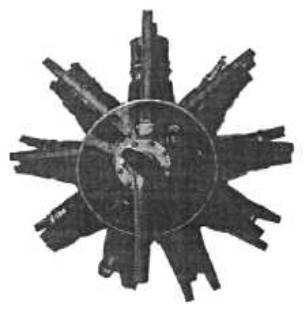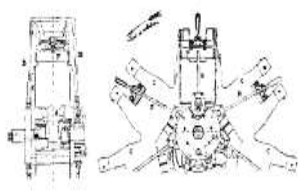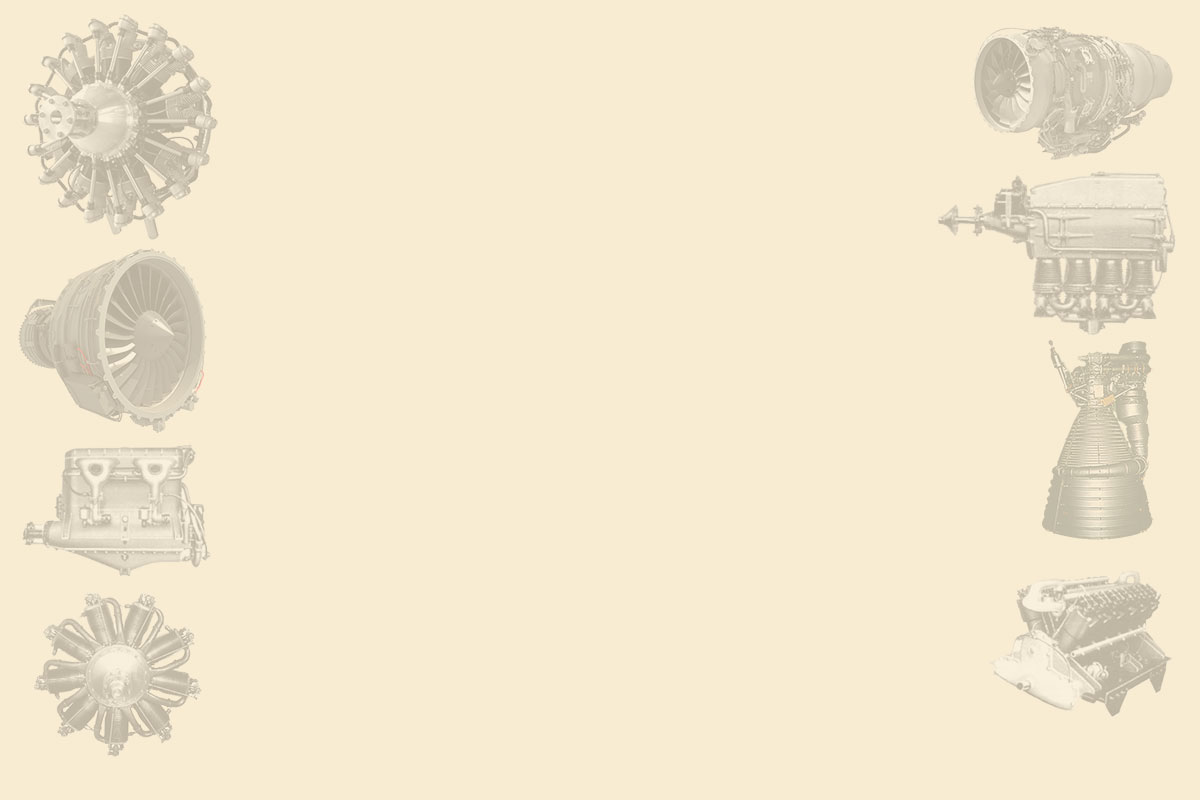Updated: 01-Jun-2017
Sometimes known simply as Cyclone (possibly referring to the engine of the previous Item).
-It is a very special engine, a 9-cylinder radial that was used for studies only. It gave 90 hp, and was developed in 1915.
-The cylinders were attached to the crankcase by their head or bottom of the combustion chamber, that is, upside down their normal position.

"Cyclone - Collet"
-The exhaust was produced at the end of the piston stroke, that is to say, close to the engine periphery.
-You can see the "connecting rods" on the outside and the inclinations that they have with respect to the cylinder axis according to the position.

"Cyclone - Collet engine diagram"
-The pistons and their short rods form a rigid assembly.
-The presented diagram is the seven-cylinder rotary version.
-In the center of the radial there is a circular crown and the radial rotates around the central group in a uniform motion.
-The cylinders are the ones that move up and down, with the radial crankcase.
-Cyclone-Collet had in fact two solutions to this principle, although both theoretically and experimentally.
Engines of CYCLONE - COLLET
Model: radial 9 cyl.
Arquitecture: 9-cylinder Rotary
Cooling:
Total Displacement:
Bore / Stroke:
Power: 90 CV @ rpm
Weight:

"Cyclone-Collet radial"


